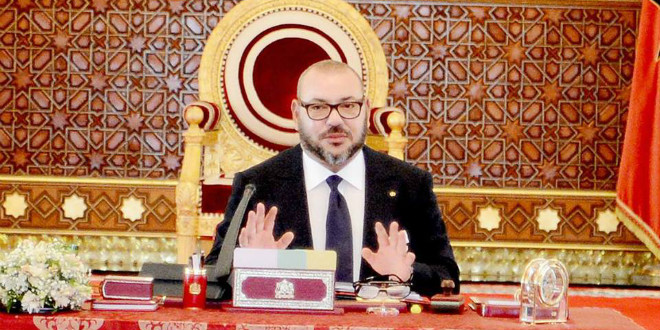A Ministers’ Council, convened Friday in Rabat under the chairmanship of King Mohammed VI, debated and adopted the 2025 appropriation bill which seeks to boost social cohesion, enhance economic sovereignty, and to achieve a strong economic recovery, with a growth rate of 4.6% in 2025, and a limited inflation rate at 2%.
At the start of the Council, Minister of Economy and Finance, Nadia Fettah Alaoui, made a presentation that addressed the challenges encountered in preparing the budget, including ongoing geopolitical tensions and escalating climate crises.
Despite these obstacles, Morocco has managed to advance economic and social reforms, while preserving the sustainability of macroeconomic balances, with growth expected to reach 3.3 in 2024, the Official said, noting that the draft revolves around four priorities, each constituting a lever for strengthening social cohesion, safeguarding economic sovereignty, and creating the foundation for future generations’ development.
The first of these priorities lies in further reinforcing the pillars of the social state, particularly through the harmonious and effective implementation of the social protection generalization project. After the generalization of compulsory basic health insurance, the implementation of the direct social aid, which has benefited about four million households, will be completed, in parallel with the ongoing health system reform.
The roadmap for education system reform and social dialogue support will also be implemented, in addition to the various projects that fall within the framework of the general reconstruction and rehabilitation program for areas affected by the Al Haouz earthquake and the floods in the Southeast of the Kingdom.
The second priority consists in consolidating the investment and job-creation momentum, by stimulating private investment and implementing the Investment Charter, with a focus on accelerating the process of approving investment projects, and continuously improving the business climate.
Public investment will also be stimulated and ongoing structural projects will be further implemented, notably the “Green Generation” strategy, the projects related to the green hydrogen sector, transition to clean energy and the roadmap for the tourism sector, while ensuring that water resources management is a top priority, accelerating the implementation of the National Drinking Water Supply and Irrigation Program, and giving special importance to the large-scale projects related to preparations to host the 2030 World Cup, the Finance Minister explained.
In parallel, a concrete roadmap for employment promotion will be implemented, according to an integrated and multidimensional approach, aiming to stimulate investment momentum, notably in the sectors with the greatest impact in terms of job creation. It is also meant to strengthen support for micro, small and medium-sized enterprises, to increase the impact of active employment programs and to mitigate the repercussions of drought on employment in rural areas.
The third priority focuses on implementing structural reforms, with the government aiming to finalize legislative and regulatory frameworks for judicial reforms, family courts, and the modernization of judicial administration. Efforts will also continue in decentralization and the reform of public establishments and enterprises, she said, adding that the organic law on the Finance Bill will be reformed, while the implementation of the law on tax reform will continue.
The fourth priority addresses the sustainability of public finances, with the minister emphasizing the importance of restoring financial balances, reducing budget deficits, and enhancing resilience against future crises, Nadia Fettah said.
The Minister noted that the general orientations of the draft Finance Bill aim to enhance the impact of the adopted strategies on the country’s development, and to achieve a strong economic recovery, with a growth rate of 4.6% in 2025, and a limited inflation rate at 2%.
After it approved the general guidelines of the draft 2025 Finance Bill, the Council of Ministers adopted seven draft decrees relating to the military field, some of which deal with the promotion of the social and material conditions of the military personnel.
These measures include salary increases for members of the Auxiliary Forces, Civil Protection, Royal Armed Forces, and Royal Gendarmerie, ensuring parity with the pay increases received by other civil servants.



